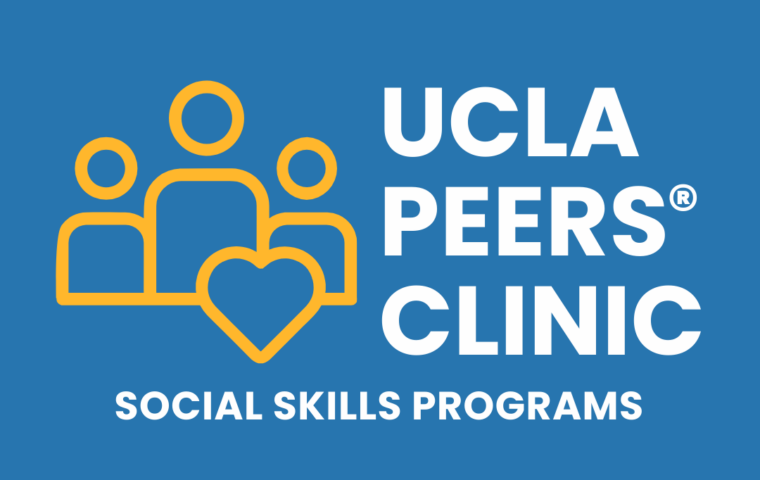Research Program

Leadership
Elizabeth Laugeson, PsyD
Founder & Director, UCLA PEERS® Clinic
Contact Info
Visit PEERS Clinic Website
300 UCLA Medical Plaza
Los Angeles, CA
peersclinic@ucla.edu
(310) 267-3377
About
The UCLA Program for the Education and Enrichment of Relational Skills (PEERS®) offers manualized, evidence-based social skills programming for youth and adults who are struggling socially.
Originally developed at UCLA by Dr. Elizabeth Laugeson, Director of the UCLA PEERS® Clinic, PEERS® programs have been extensively researched and disseminated worldwide through translation, cross-cultural validation studies, and certified provider trainings.
The UCLA PEERS® Clinic offers resources and services for families and professionals, including:
- PEERS® for Preschoolers
- PEERS® for Adolescents
- PEERS® for Young Adults
- PEERS® for Dating
- PEERS® for Careers
- PEERS® Virtual Bootcamp
- PEERS® Certified Training Seminars for Professionals
Contact Information
Follow us: Facebook | Twitter | Instagram – @uclapeers
Website: UCLA PEERS® Clinic
Phone: 310-267-3377
Email: peersclinic@ucla.edu
Affiliated